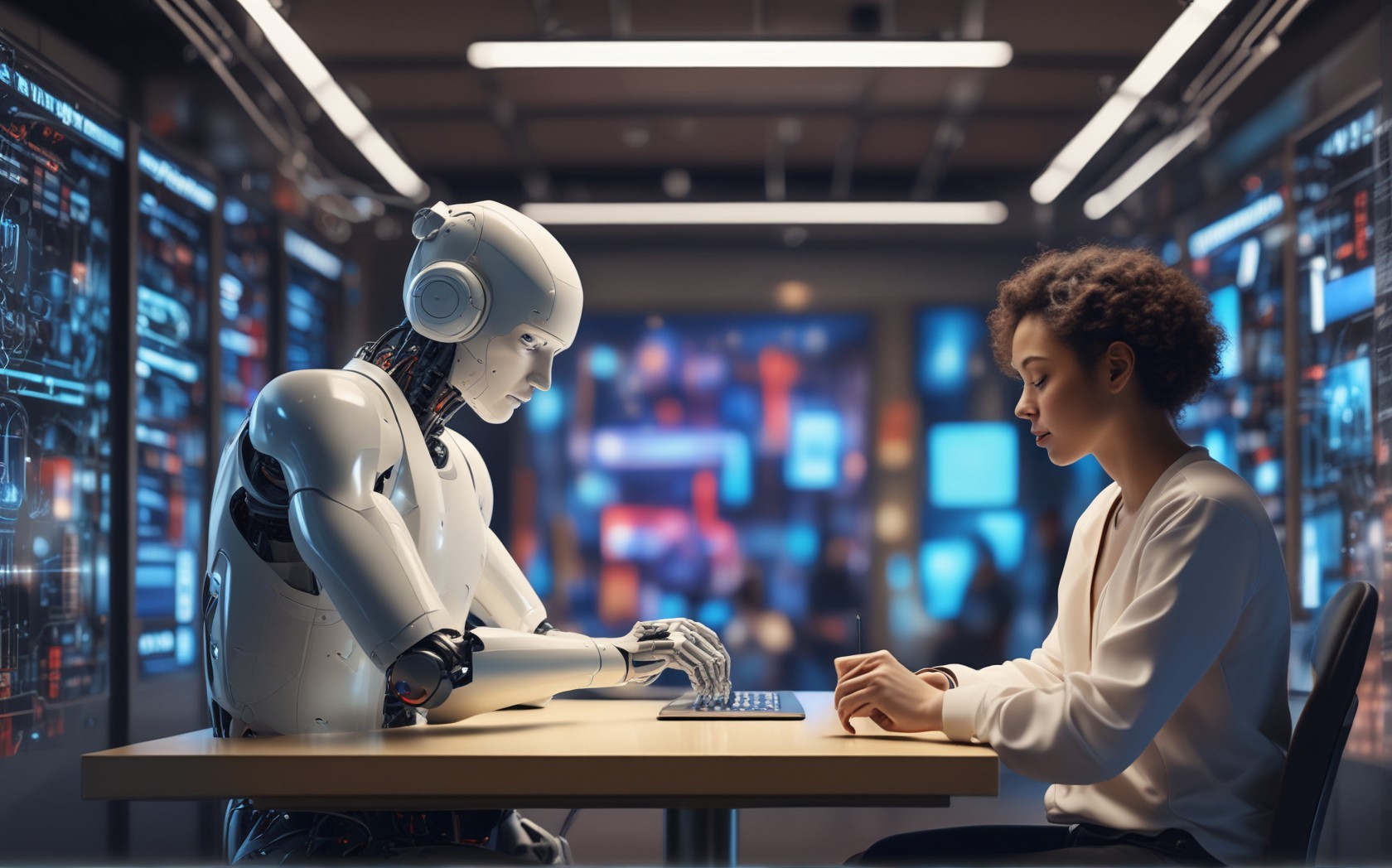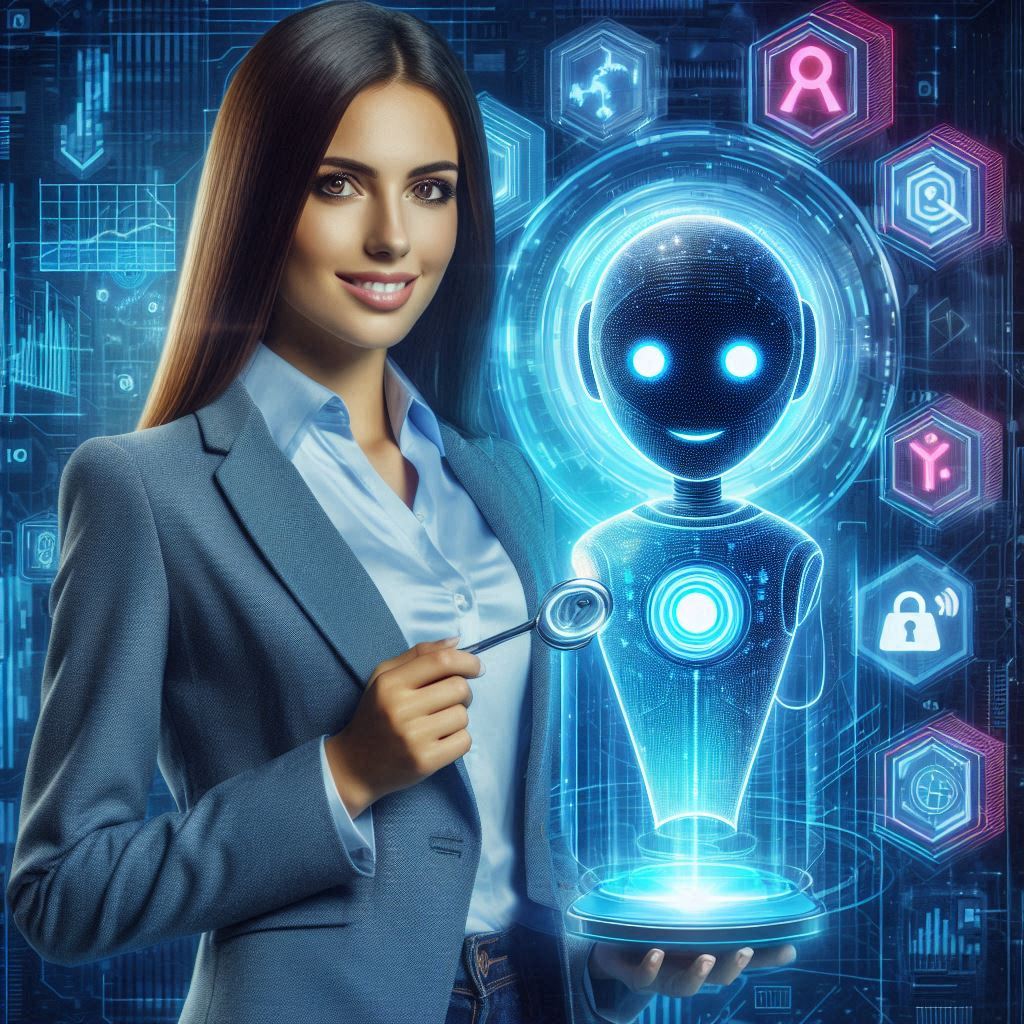In a world increasingly dominated by technology, the emergence of “Machine Customers” is transforming the way businesses interact with their clientele. These entities, powered by artificial intelligence (AI), have begun to operate as autonomous consumers, reshaping traditional marketing, sales, and service paradigms. As organizations strive to keep pace with evolving consumer behaviour and expectations, understanding the implications of these machine customers becomes paramount. In this article, we will explore the definition, characteristics, and impact of machine-customers, examining how AI-driven interactions are not just an evolution but a revolution in consumer experience.
Understanding Machine Customers
At its core, the concept of machine-customers refers to AI systems that perform consumer-like functions. Unlike traditional customers who make purchasing decisions based on personal preferences, emotional cues, and social influences, machine-customers operate on data-driven algorithms. They engage with businesses and products through automated processes, often without any human intervention. Examples include chatbots that handle customer service inquiries, AI-driven platforms that make purchasing decisions for individuals based on their preferences, and even autonomous vehicles that navigate transport logistics.
The rise of machine-customers is a direct response to the growing volume of data available to businesses today. With advancements in data analytics, machine learning, and natural language processing, companies are equipped to analyse consumer behaviour in real-time, offering tailored experiences at unprecedented scales. For instance, e-commerce giants like Amazon leverage machine learning algorithms to recommend products based on previous purchases, browsing history, and even predictive analytics that consider seasonal trends and consumer behaviour patterns.
The Evolution of Consumer Interaction

Historically, consumer interactions were primarily human-to-human. A customer would visit a store, speak to a sales representative, and make purchasing decisions based on the information provided by that representative. However, the digital revolution has fundamentally altered this dynamic. With the advent of online shopping, mobile applications, and social media platforms, consumers now have access to vast amounts of information, allowing them to conduct their research before making purchases.
As businesses adapted to these changes, the role of AI began to emerge as a critical component of consumer interaction. Companies began to adopt chatbots and virtual assistants, which not only improved customer service efficiency but also enhanced user engagement. These AI systems could analyse customer queries, provide immediate responses, and even upsell or cross-sell products based on user preferences. The introduction of machine-customers has taken this evolution to the next level, enabling autonomous systems to interact with businesses in ways that were previously unimaginable.
Characteristics of Machine Customers
To better understand the impact of machine-customers, it’s essential to examine their defining characteristics. Here are some key features that set them apart:
- Data-Driven Decision Making: Machine-customers operate based on data analytics, utilizing vast datasets to make informed decisions. Their ability to process and analyse information far exceeds that of human consumers, allowing them to make choices that align with predetermined goals or preferences.
- Autonomy and Independence: Unlike traditional customers who may seek advice or reassurance from human agents, machine-customers operate independently. They can autonomously navigate purchasing processes, interact with other AI systems, and execute transactions without human intervention.
- Scalability: Machine-customers can scale interactions far beyond what a human workforce could achieve. A single AI system can engage with thousands of users simultaneously, providing consistent service and personalized experiences to each one.
- Continuous Learning: Machine-customers are built on machine learning algorithms that allow them to adapt and improve over time. As they interact with businesses and analyse consumer data, they continuously refine their decision-making processes, enhancing their efficiency and effectiveness.
- 24/7 Availability: Unlike human customers who operate within certain hours, machine-customers are available around the clock. This constant accessibility allows businesses to engage with consumers globally, irrespective of time zones or business hours.
Impact on Business Models
The rise of machine customer is prompting significant shifts in business models across industries. Companies are increasingly leveraging AI to create more personalized, efficient, and engaging consumer experiences. Here are some key areas where the impact is particularly pronounced:
1. Enhanced Customer Service
The integration of AI-driven machine customer into customer service has revolutionized the way businesses interact with clients. Chatbots and virtual assistants are now capable of handling routine inquiries, processing transactions, and providing personalized recommendations. For example, a customer seeking assistance with a product return can interact with an AI chatbot that guides them through the process step-by-step, providing immediate solutions without the need for human intervention. This not only improves response times but also allows human agents to focus on more complex issues that require empathy and nuanced understanding.
2. Personalized Marketing
Machine customer enable businesses to gather and analyse data on consumer behaviour more effectively than ever before. By leveraging machine learning algorithms, companies can segment their audience and deliver personalized marketing messages tailored to individual preferences. For instance, AI systems can track a customer’s browsing history, purchase behaviour, and social media interactions to create targeted advertisements that resonate with their specific interests. This level of personalization enhances engagement and increases the likelihood of conversions, as consumers are more inclined to respond to offers that align with their preferences.
3. Predictive Analytics
One of the most significant advantages of machine customer is their ability to utilize predictive analytics to forecast future consumer behaviour. By analysing historical data and identifying patterns, AI systems can anticipate consumer needs and preferences. For instance, an AI-powered retail platform can analyse past purchasing trends to predict which products are likely to be in demand during specific seasons. This foresight allows businesses to optimize inventory management, marketing strategies, and promotional campaigns, ultimately driving sales and enhancing customer satisfaction.
4. Improved Efficiency
The automation of consumer interactions through machine customers has led to significant improvements in operational efficiency. Businesses can streamline processes, reduce human error, and lower operational costs by leveraging AI systems for routine tasks. For example, AI-driven supply chain management systems can analyse data in real-time to optimize logistics, track inventory levels, and forecast demand, ensuring that products are delivered to consumers promptly and efficiently.
5. New Revenue Streams
As machine customers gain traction, businesses are exploring new revenue models that capitalize on AI-driven interactions. Subscription services, personalized product recommendations, and data-driven insights are just a few examples of how companies can monetize their machine customer interactions. For instance, a subscription-based model that offers consumers tailored product recommendations based on their preferences can create a steady revenue stream while enhancing customer loyalty.
Challenges and Considerations
While the rise of machine customers presents numerous opportunities, it also raises several challenges and considerations that businesses must address. Here are some key challenges associated with the integration of machine customers into consumer interactions:
1. Ethical Concerns
The automation of consumer interactions through AI systems raises ethical questions surrounding data privacy and security. As machine customers rely on vast amounts of consumer data to function effectively, ensuring the protection of this data becomes paramount. Businesses must implement robust security measures to safeguard consumer information and comply with relevant data protection regulations. Moreover, transparency regarding data usage is essential to build trust with consumers who may be wary of how their information is being utilized.
2. Dependence on Technology
As businesses increasingly rely on machine customers for consumer interactions, there is a risk of over-dependence on technology. While AI systems can enhance efficiency and improve customer experiences, it is essential to maintain a balance between automation and human interaction. Certain situations may require a human touch, particularly in complex or sensitive matters. Organizations must strike a balance that preserves the value of human engagement while leveraging the advantages of AI-driven interactions.
3. Integration Challenges
Integrating machine customers into existing business processes can pose significant challenges. Organizations must ensure that their AI systems are compatible with existing technology infrastructure and workflows. Additionally, training employees to effectively collaborate with AI systems and leverage their capabilities is crucial for successful integration. Businesses should invest in training programs that equip employees with the skills necessary to work alongside machine customers and maximize their potential.
4. Maintaining Personalization
As businesses automate consumer interactions, maintaining a personalized experience becomes increasingly challenging. While machine customers can deliver tailored recommendations based on data analysis, there is a risk that interactions may become overly transactional. Companies must find ways to infuse empathy and personalization into AI-driven interactions to ensure that consumers feel valued and understood. This may involve integrating human oversight into the process, allowing for a more nuanced understanding of consumer needs.
The Future of Machine Customers

As technology continues to advance, the role of machine customers in consumer interactions is likely to expand. Here are some predictions for the future of this evolving landscape:
1. Enhanced Emotional Intelligence
Future machine customers may incorporate advanced emotional intelligence capabilities, enabling them to better understand and respond to human emotions. By analysing tone, sentiment, and context in consumer interactions, AI systems could tailor responses that resonate on a deeper emotional level. This could lead to more engaging and fulfilling interactions, blurring the lines between human and machine engagement.
2. Increased Autonomy
As AI technology continues to improve, machine customers will likely gain greater autonomy in decision-making processes. This could lead to fully autonomous purchasing systems that make choices on behalf of consumers based on pre-established criteria. For example, a machine customer could autonomously manage a consumer’s subscription services, ensuring that they receive the best value while adhering to their preferences and budget.
3. Integration with Emerging Technologies
The future of machine customers will likely see increased integration with emerging technologies such as the Internet of Things (IoT), blockchain, and augmented reality. This interconnected ecosystem could enable machine customers to gather real-time data from various sources, enhancing their decision-making capabilities and providing consumers with richer experiences. For instance, a machine customer could interact with smart home devices to optimize energy consumption based on user preferences, all while ensuring cost-efficiency.
4. New Business Models
The rise of machine customers is likely to spur the emergence of new business models that leverage AI-driven interactions. Companies may explore subscription-based services that provide personalized recommendations, real-time support, and exclusive offers tailored to individual consumer preferences. As organizations innovate in the machine customer space, we can anticipate a future characterized by hyper-personalized experiences that seamlessly integrate AI-driven interactions with human touchpoints.
Also Read: Pass the eJPT Exam: Your Ethical Hacking Journey
Conclusion
The rise of machine customers is reshaping the landscape of consumer interaction in profound ways. By leveraging AI-driven systems, businesses are enhancing efficiency, personalizing experiences, and creating new revenue opportunities. However, organizations must navigate the challenges associated with ethical concerns, technology dependence, and maintaining a balance between automation and human engagement.
As we move forward into a future dominated by machine customers, understanding their characteristics and implications will be crucial for businesses looking to thrive in an increasingly digital landscape. By embracing these changes and leveraging the potential of AI-driven interactions, companies can not only meet the evolving needs of consumers but also redefine the very essence of customer experience in the modern world. The journey has just begun, and the possibilities are limitless.
(FAQs) Regarding Machine Customers and AI-driven Interactions:
- What are machine customers?
- Machine customers refer to AI systems that perform consumer-like functions, making autonomous decisions and engaging with businesses through data-driven processes rather than human interaction.
- How do machine customers differ from traditional customers?
- Unlike traditional customers, machine customers operate independently, rely on algorithms and data analytics for decision-making, and can handle interactions at scale without human intervention.
- What industries are using machine customers?
- Industries such as retail, finance, healthcare, and logistics are leveraging machine customers to enhance customer service, personalize marketing, and improve operational efficiency.
- How do machine customers improve customer service?
- Machine customers, such as chatbots, can provide immediate responses to inquiries, process transactions, and offer personalized recommendations, leading to faster and more efficient customer service.
- What role does data play in machine customer interactions?
- Data is crucial for machine customers as they use analytics to understand consumer behaviour, predict needs, and deliver tailored experiences based on past interactions and preferences.
- Are there ethical concerns associated with machine customers?
- Yes, ethical concerns include data privacy, security, and the potential for bias in AI algorithms. Businesses must ensure they handle consumer data responsibly and transparently.
- How can businesses integrate machine customers into their operations?
- Businesses can integrate machine customers by adopting AI technologies, training employees to work alongside these systems, and ensuring compatibility with existing processes and technologies.
- What are the benefits of using machine customers for marketing?
- Machine customers allow for highly personalized marketing strategies based on data analysis, which can increase engagement, conversion rates, and overall customer satisfaction.
- What challenges do businesses face with machine customers?
- Challenges include maintaining personalization in automated interactions, addressing ethical concerns, and managing the integration of AI into traditional business models.
- Will machine customers replace human employees?
- While machine customers can automate certain tasks, they are intended to complement human employees rather than replace them. Human oversight remains crucial for complex or sensitive interactions.
- What is the future of machine customers?
- The future of machine customers likely includes enhanced emotional intelligence, greater autonomy, and integration with emerging technologies like IoT and blockchain, leading to more sophisticated consumer interactions.
- How can businesses ensure a balance between machine customers and human interaction?
- Businesses can maintain this balance by using machine customers for routine tasks while ensuring that human agents are available for more complex issues, thus providing a holistic customer experience.




















